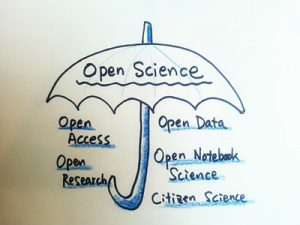 While many of us are following good social distancing practices by staying home, medical researchers and practitioners continue their work out in the world. Back in January I described how Open Science supports public health research and response in these kinds of fast-moving situations. It’s time for a quick update.
While many of us are following good social distancing practices by staying home, medical researchers and practitioners continue their work out in the world. Back in January I described how Open Science supports public health research and response in these kinds of fast-moving situations. It’s time for a quick update.
Before March 13th, less than half of coronavirus research was openly available to read. On March 13th, national science advisors from 12 countries posted an open letter to journal publishers, requesting that they open up new and old research articles about coronaviruses. The White House OSTP issued the same request, and on March 16th, the Wellcome Trust published a list of publishers that have pledged to make coronavirus (COVID-19) content freely available and reusable. Some examples:
- Coronavirus (Covid-19) from New England Journal of Medicine
- Novel Coronavirus Information Center from Elsevier
- Covid-19 Novel Coronavirus Outbreak from Wiley
- SARS-Cov-2 and COVID-19 from Springer Nature
Many researchers are posting their research on preprint servers like bioRxiv and medRxiv. Here’s a direct link to COVID-19 SARS-CoV-19 preprints from medRxiv and bioRxiv.
There’s also a preprint server that focuses on infectious disease and organizes quick reviews of the articles posted there. It’s called Outbreak Science. Wellcome Trust, PREreview, and Outbreak Science created and maintain it.
Finally, the Welch Medical Library has published a COVID-19 Resources guide to provide the health care professional of Johns Hopkins University and Medicine with timely content and resources regarding the worldwide COVID-19 outbreak.
If you’re interested in Open Science the Johns Hopkins Libraries provide several relevant services.
- Data Services supports JHU researchers on the Homewood and East Baltimore campuses with a spectrum of resources for working with data, including open data.
- The Public Access Submission System (PASS) and JScholarship are available to all JH faculty to use to submit article manuscripts to funder repositories and our own institutional repository, JScholarship. These tools help faculty satisfy the requirements of the Johns Hopkins Open Access Policy.
- Librarians and Informationists are prepared to discuss questions you might have around preprints, open access, copyright, and other topics related to Open Science. We have two specialists, who work primarily with the changing scholarly publishing landscape. Caitlin Carter and Robin Sinn work at the East Baltimore and Homewood campuses respectively, and welcome questions from any Hopkins affiliate.
To stay up-to-date about COVID-19 keep an eye on the Johns Hopkins Coronavirus COVID-19 tracking map, a great example of Open Science. Wash your hands, follow social distancing guidelines, and stay safe.
